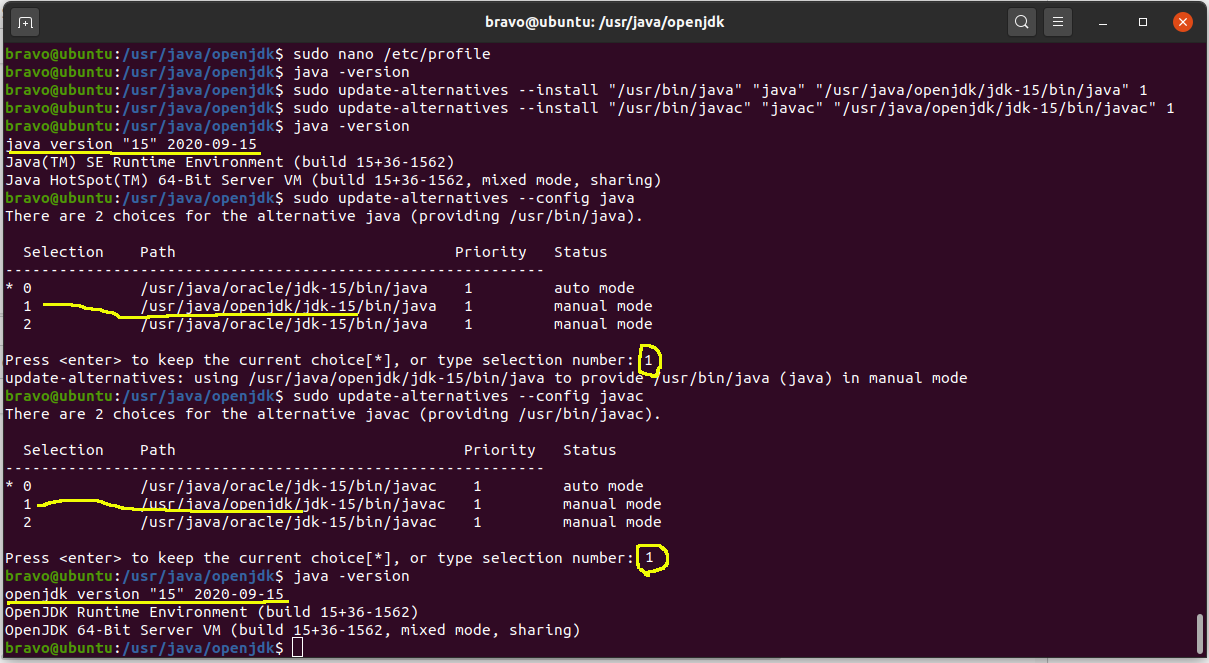

Here is how to download and install Oracle JDK 14 on Ubuntu Linux. More info: Install Java 14 on Ubuntu Linux The latest Java Development Kit (JDK) delivers new features, including two new highly anticipated preview features – Pattern Matching for instance of (JEP 305) and Records (JEP 359), as well as a second preview of Text Blocks (JEP 368).Īdditionally, the latest Java release adds Java language support for switch expressions, exposes new APIs for continuous monitoring of JDK Flight Recorder data, extends the availability of the low-latency Z Garbage Collector to macOS and Windows, and adds, in incubator modules, the packaging of self-contained Java applications and a new Foreign memory access API for safe, efficient access to memory outside of the Java heap. The release statement explains how the Oracle Java 14 (Oracle JDK 14) brings new enhancements to enterprises and the developer community with a new feature release every six months. Pattern Matching for instanceof (JEP 305), Records (JEP 359) and Text This new release includes three preview features: New APIs for continuous monitoring of JDK Flight Recorder data, andĮxtended availability of the low-latency Z Garbage Collector to macOS Productivity, including Java language support for switch expressions, curl -X GET Output:Įnsure that cluster name shows as graylog.Oracle JDK 14 adds new features to improve developer Elastisearch should be now listening on 9200 for the processing HTTP request. Wait at least a minute to let the Elasticsearch get fully restarted. Start the Elasticsearch service to read the new configurations. Sudo nano /etc/elasticsearch/elasticsearch.yml
#UBUNTU 18.10 INSTALL OPENJDK 11 UPDATE#
Edit the configuration file of Elasticsearch and update it accordingly. The only important thing is to set a cluster name as graylog.


Make Elasticsearch service to start automatically on the system startup. Update the repository cache and install Elasticsearch package. echo "deb stable main" | sudo tee -a /etc/apt//elastic-6.x.list Set up Elasticsearch repository by running below command. OpenJDK 64-Bit Server VM (build 25.191-b12, mixed mode) Install ElasticsearchĮlasticsearch is one of the main components which requires Graylog to run, acts as a search server, offers a real-time distributed search and analytics with the RESTful web interface.Įlasticsearch stores all the logs sent by the Graylog server and displays the messages whenever user request over the built-in web interface.ĭownload and install the GPG signing key. Sudo apt install -y apt-transport-https openjdk-8-jre-headless uuid-runtime pwgen curl dirmngr Install either OpenJDK or Oracle JDK on your machine to proceed further. PrerequisitesĪs you know, Elasticsearch is a java based application. It collects the logs from various inputs and provides output to a built-in web interface for managing the logs. It is recommended to allocate more memory and use SAS or SAN disks for Elasticsearch nodes. MongoDB – Acts as a database, stores the configurations and meta information.Įlasticsearch – It stores the log messages and offers a searching facility.

This guide focuses on installing Graylog on Ubuntu 18.04 / Ubuntu 16.04. Graylog is an open-source log management tool that helps you to collect, index and analyze any machine logs centrally.


 0 kommentar(er)
0 kommentar(er)
